Joe Widger made sporting history when he won the Grand National at Aintree in 1895, riding Wild Man from Borneo. This victory became legendary, forever etched in the annals of Irish horseracing and immortalized in Waterford lore.
In 1892, the racehorse Wild Man from Borneo, better known simply as Wild Man, placed second in the Maiden Plate at Punchestown. This promising performance, combined with his pedigree – his mother, Wild Duck, had claimed glory in several steeplechases, including the Ward Hunt Cup at Fairyhouse – prompted Waterford jockey Joe Widger, along with his brother Michael, to purchase the horse in 1893.
This partnership would culminate in one of Aintree’s most memorable moments for the Irish.
A F F I L I A T E A D

While James Gatland is often incorrectly attributed as Wild Man’s trainer, Joe Widger later clarified that he and his brother Michael handled all the training themselves. Michael happened to be working at Gatland’s stables in Alfriston in the early 1890s. The Widgers also stabled Wild Man in Alfriston before the race, and both Joe and Michael stayed there as well. This has likely contributed to the confusion.
The Widger family ran an extensive equestrian business at Railway Square in Waterford city, focused around horse breeding, dealing, stabling, show jumping and horseracing. Joe Widger started riding at the age of 10 and soon secured his first win in Woodstown, just outside Waterford city. As a teenager, he ran away from his boarding school in Co. Laois to enter a race in Wales, which he won. Believing he was safe at school, his family was stunned the next morning to find his name in the newspaper, listed as a race winner. He went on to win numerous steeplechases in Ireland.
Sign up to our newsletter
With Widger in the saddle, Wild Man delivered an impressive performance at Aintree in the 1894 Grand National. He took the lead for part of the race before being overtaken in the closing stages by two more seasoned competitors (Why Not and Lady Ellen II), leaving him to settle for third. This was a respectable result for a relatively inexperienced horse, and that performance built anticipation for his return to Aintree the following year.
1895 Grand National
Poor weather in the lead-up to the 1895 Grand National left the ground heavy at Aintree on race day. Following his strong performance the previous year, Wild Man was given an extra 16lbs to carry, bringing his total to 10st 11lbs.
Help support
Irish Heritage News
A small independent start-up in West Cork
Give as little as €2
Thank You
Wild Man and Widger ran a calculated race. The experienced jockey kept Wild Man just behind the leaders for most of the race, conserving his energy for the crucial moment.
After jumping the final fence – with plenty still left in the tank – Widger finally gave Wild Man his head, urging him forward. The horse surged ahead, crossing the finish line one and a half lengths clear in a time of 10 minutes 32 seconds. Widger was around 31 years old at the time of his Grand National win.
A D V E R T I S E M E N T
This win sparked jubilant celebrations in Widger’s native Waterford. Over a number of days and nights, thousands filled the city’s streets to join in the festivities.
Reports claimed that over £50,000 in bet winnings were collected by the people of Waterford, cementing Wild Man’s place in local lore.
Wild Man returned to Aintree for the 1896 and 1897 Grand Nationals, but he fell in the 1896 race and was pulled up in 1897.
His later years are clouded in uncertainty. Some accounts suggest that the horse died in 1901, though the exact details remain unclear. His moment of glory, however, has not faded from the collective memory of the people of Waterford and the Irish racing community.
In the 1890s, A. H. Poole – a well-known photographer whose family-run studio operated on the Mall in Waterford from 1884 to 1954 – captured several photographs of Wild Man from Borneo and the Widger family. The Poole collection, which includes over 7,000 images primarily of Waterford’s people and places, was later donated to the National Library of Ireland. Many of these historic photographs are now available to view online on the National Library website.
Read Joe Widger’s personal account of his career as a jockey here.
Advertising Disclaimer: Irish Heritage News is an affiliate of FindMyPast – we earn commissions from qualifying purchases. This does not affect the amount you pay for your purchase.
READ NOW
➤ From rackets to rugby: Dubliner Frank Stoker and his sporting triumphs
➤ New Geneva: Waterford’s failed town that became a prison for rebels
➤ Charting Judith Chavasse’s life in West Cork and Waterford through her diaries and memoirs
➤ James B. Connolly: first modern Olympic champion and son of Irish emigrants
A D V E R T I S E M E N T




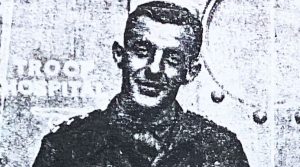


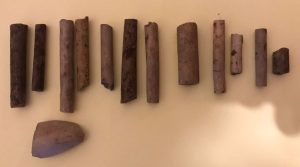
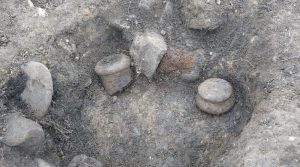
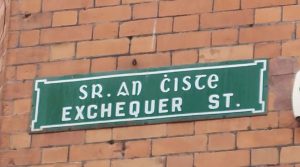




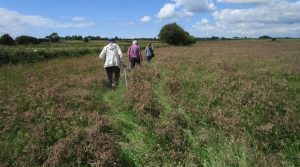
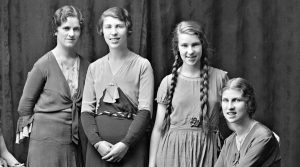
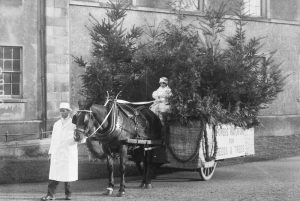

One Response
Excellent stories.